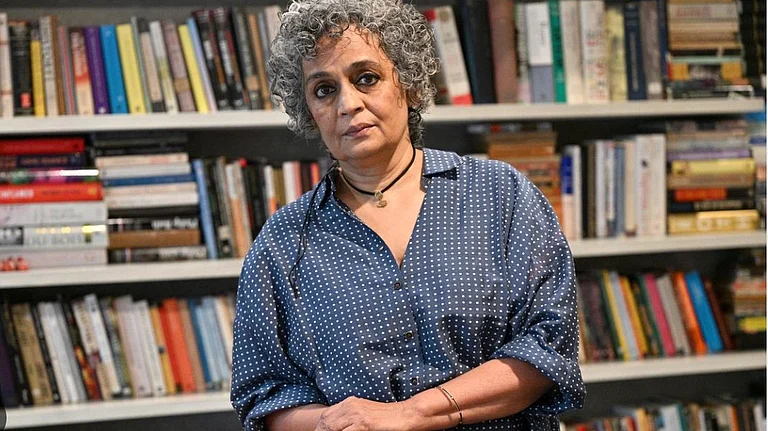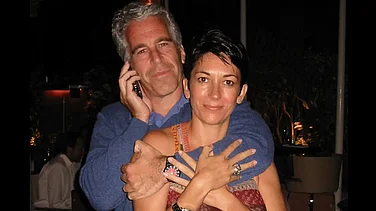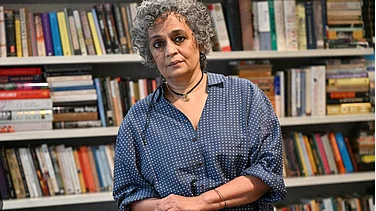Imran Khan’s threat to withdraw from the “corrupt political system” last week, seems to have caught his opponents on the wrong foot.
Addressing a big rally in Rawalpindi on November 26, Imran declared that he was ending his “long march” and had no intention of taking it to the capital, Islamabad, as planned earlier to avoid violence and a serious law and order problem.
Imran had planned the Lahore to Islamabad march in October to force the Shahbaz Sharif government to concede to his demand for holding early general elections.
The parliamentary elections in Pakistan are due in October 2023 but Imran wants it to be held months before that.
Long marches, Assassinations, Resignations: Khan's bid for political clout
However, his march was disrupted in early November after he was shot in the leg in an assassination attempt.
Though sceptics raised questions about the seriousness of the attempt on his life, the former prime minister used the attack to accuse the government and the country’s spy agency, ISI, for their attempt to eliminate him.
His supporters had continued the march, but Imran withdrew and reappeared only on the day it reached Rawalpindi to address the rally.
As chairman of the Pakistan Tehreek-e-Insaf (PTI) party, Imran declared that he will ask his chief ministers and party legislators to withdraw from the federal and regional governments.
Imran’s party is in power in Punjab, Khyber Pakhtunkhwa, Pakistan-occupied-Kashmir and the Gilgit-Baltistan provinces.
Though his opponents in the ruling coalition were initially dismissive of his move and described it as a desperate attempt on his part to remain politically relevant, the true import of his threat has begun to be realized as the week wore on.
A lot still depends on whether Imran will take the risk of asking his chief ministers to resign, especially from Punjab— the most populous and politically important province that accounts for 50 percent of the parliamentary seats.
His opponents are trying to thwart his move by moving no-confidence motions in the Assemblies against his government, so that he cannot ask for dissolution of the house if his party loses its trust.
But there is also growing fear that if his party chief ministers seek to dissolve the Assemblies, then fresh elections could be held in the next 90 days.
The possibility of holding Assembly elections in four provinces and an official withdrawal of his party MPs from parliament, could raise serious questions about the legitimacy of the Sharif government to continue with the remaining period of its term.
The Election Commission may be forced to hold parliamentary elections along with polls in the provincial assemblies.
This can lead to parliamentary elections to be held much earlier than October next year.
Accusations levelled against Pak Army, US government
Imran, who was ousted from power after he lost a trust vote in parliament in April, had been attacking the Pakistani army and the United States, one of the most important players in the country, to throw him out for his independence and not bowing to their dictates.
His relentless attack on the army, America and the corrupt politicians that replaced his government, found much traction with the people, especially the younger generation of Pakistanis in recent years.
The fact that the army chief Qamar Javed Bajwa, who had been in the post since 2016 and did not seek another extension, could have been prompted by the negative image Imran’s campaign had created against him and the army establishment.
Bajwa realised there was disquiet in the army following the public criticism of its interference in politics and decided not only to step down at the end of his tenure but also to caution his officers not to dabble in politics.
But the Sharif government managed to outsmart Imran on the appointment of the new army chief. Imran had insisted that as the leader of the Opposition in parliament, he should be consulted while choosing the army chief.
However, the Prime Minister not only decided to ignore him but also appointed Asim Munir to replace Bajwa.
As the chief of the ISI, Munir was removed from the post within eight months when Imran, as prime minister, replaced him with his favourite general, Faiz Hamid, in 2018.
Even if he refrains from dabbling in politics, Munir is unlikely to oblige Imran to suggest early polls to the government.
Khan's reigning popularity
But this also poses a problem for the government and the army establishment. Imran continues to be the most popular political leader in Pakistan now. If early elections are held, he is likely to sweep the election.
The Sharif government on the other hand, has become extremely unpopular by removing subsidies on gas and electricity in the face of rising inflation. It agreed to these measures to get an economic bailout package from the IMF to put the economy back on track.
It can now argue with the army establishment to back its decision and not force it to hold early elections.
Nawaz: The Sharifs' Trump Card?
The Prime Minister wants his elder brother and former prime minister, Nawaz Sharif, who left the country following corruption charges, to return from self-exile in London.
Nawaz, a charismatic leader, can prove to be the perfect foil to counter Imran’s popularity, especially in his home ground, Punjab.
By the time arrangements are made to squash the pending corruption charges against Nawaz, the Sharif government may get enough time to announce fresh subsidies and concessions for people and go into the polls to deal with Imran’s PTI and its band of supporters. But it cannot do this before October 2023.
However, 10 months is a long time in politics. A lot can happen in this period to throw up new challenges both for the Sharifs or Imran Khan.
Pakistan battling terror threats
The political tussle between the two sides is also being played out when the Pakistani Taliban has decided to end its ceasefire with the government and resume attacks across the country.
On November 30, a suicide bomber of the terrorist group, killed four people in Quetta, the provincial capital of Baluchistan and injured several others.
The attacks are likely to intensify in the coming days. But even if the army manages to deal with the threat effectively, it may fail to ensure a peaceful Pakistan until the next election is held.


























